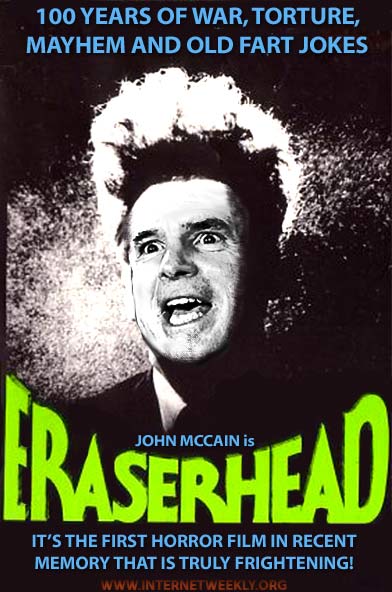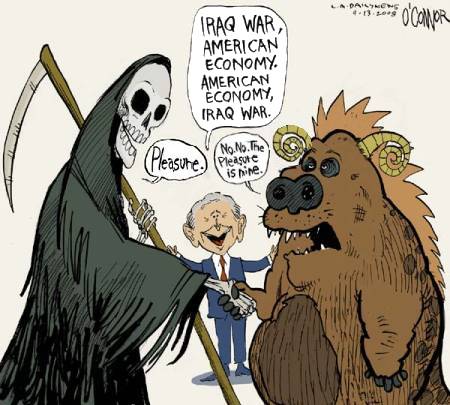
Santo Daime: the drug-fuelled religion
A new religion is spreading to Britain - its central sacrament the consumption of a hallucinogenic Class A drug. Here's a report from the faith's heartland in the rainforests of the Amazon
 I am deep in the Amazon rainforest, anxiously losing my mind as the world begins to disintegrate. Around me, all sense of distance is wrapping itself up like spatial origami, slowly shrinking until an entire dimension has disappeared. A moment ago, I was surrounded by 200 people dressed in white and singing like angels, but now they occupy the same space as me... if that makes any sense.
I am deep in the Amazon rainforest, anxiously losing my mind as the world begins to disintegrate. Around me, all sense of distance is wrapping itself up like spatial origami, slowly shrinking until an entire dimension has disappeared. A moment ago, I was surrounded by 200 people dressed in white and singing like angels, but now they occupy the same space as me... if that makes any sense.Wherever I look, that is where I am. I can see everything from every angle, all at the same time. In fact, I feel I am everywhere. Outside, in the forest, the thrum of frogs and cicadas drowns out the sound of shrieking monkeys. Below me, the floor is shimmering, vanishing in waves like a spent mirage. Behind, I feel a cold vibration on my neck and sense a growling malevolence. I turn and see a red door, bulging at the hinges. Overcome with dread, I push hard to keep it closed, and all the while I feel a horrible nausea.
When will this end, I am thinking. And, with sweat running down my forehead, how can I survive it? Welcome to the Church of Santo Daime, one of the fastest growing religions in the world. Its mixture of Christianity, South American shamanism and African animism is proving irresistible to thousands of new believers across the globe. But it is its central sacrament, ayahuasca, a powerful hallucinogenic brew made from rainforest plants - a brew that I have just drunk - that makes the Church so appealing to some yet so controversial to others.
Santo Daime groups believe that ayahuasca, or Daime, as they call it, is a manifestation of Jesus Christ that brings them closer to God. Their visions, sometimes terrifying, sometimes blissful, help them to make sense of themselves, their universe and their god. Theirs is a young church - less than 80 years old - but in recent times it has spread throughout South America to the US and Canada, the Far East and Australasia, across mainland Europe and on to the UK.

Divorce Video of the Week
The coming hunger
Riots over rising grain prices are ripping through the developing world and the United Nations warns there's worse to come. Was Malthus right? Are we getting too numerous to feed ourselves?
by Lynda Hurst
 The warning bells are ringing, furiously.
The warning bells are ringing, furiously.This week, food riots paralyzed Haiti, with angry marchers outside the president's palace shouting "We are hungry!" Five people were killed in the chaos.
In Egypt, a 15-year-old boy was shot and killed this week in two days of violence over food shortages. Last month, a two-week protest at government-subsidized bakeries ended with the deaths of 10 Egyptians in clashes with police.
Rice is the staple food of 4 billion people. But the prices for it, along with corn, wheat and other basics, has surged by 40 per cent to 80 per cent in the last three years and caused panicked uprisings in some of the poorest countries on Earth, from Cameroon to Bolivia.
The situation has deteriorated so swiftly that some experts predict the effects of a global food crisis are going to bite more quickly than climate change.
According to the World Bank, 33 countries are now vulnerable to social unrest and political instability because of food insecurity and that has implications for all the rest. Major rice producers like China, Cambodia and Vietnam are already battening down, curbing exports to ensure supplies for their own populations. The Philippines, whose population has grown from 60 million to almost 90 million in 17 years, is warning rice hoarders they'll be charged with economic sabotage.
Why is it happening? Was Malthus right when he said the world would eventually be too populated to feed itself?

Three Amigos Summit
by Manuel Prez Rocha and Sarah Anderson
President George W. Bush will soon host what has become an annual Three Amigos Summit. The leaders of Mexico, the United States, and Canada will be gathering in New Orleans on April 21 and 22. What do you suppose is on the agenda? A rational response to immigration, perhaps? A thoughtful renegotiation of the unpopular North American Free Trade Agreement? Lessons from Canada's affordable medicines program?
No. No. And no. Rather than putting their heads together around pressing issues such as these, the three leaders will be advancing a so-called Security and Prosperity Partnership (SPP). And while that may sound well and good, this initiative, begun in 2005, is unlikely to produce either security or prosperity. That's because the partnership is only with big business.
The chief executives of Wal-Mart, Chevron, and 28 other large corporations are in on the closed-door negotiations, while members of Congress, journalists, and ordinary citizens are excluded. And the secrecy is not just around the presidential summits, but also the meetings of about 20 SPP working groups that carry on negotiations over the course of the year.
What's on the table? Not much is public, but we do know that the executive powers of the three countries are hammering out regulatory changes that they claim do not require legislative approval. And given who's in the room, it's a safe bet that these changes will favor narrow corporate interests over the public good.

Why Shouldn't We Be Bitter?
By Michael Winship
Having grown up in a small town, I'm always struck at how rarely movies and television shows and other art forms capture the quality of life there. The false notes are thumped as discordantly as the "Moonlight Sonata" on a badly tuned spinet; the citizens portrayed as homicidal mouth breathers, amusing rubes or country sages with an unsullied rustic wisdom that astonishes visiting city slickers.
Some get it right. A weekend attending a conference in Columbus, Ohio, ended Sunday at the small, Victorian boyhood home of one of my literary heroes, James Thurber. In his short stories and reminiscences, it was his "sure grasp of confusion," as a magazine once put it, his understanding of small town, family dynamics and foibles that instantly won my heart, even at an early age.
And though Thurber, like me and so many others, wound up in Manhattan, exploring the anguishes and delights of the big city, he himself wrote, "My books prove that I am never very far away from Ohio in my thoughts, and that the clocks that strike in my dreams are often the clocks of Columbus."
So, it was with a mixture of bemusement, bewilderment and vexation that I've been watching the furor around Barack Obama's remarks at a San Francisco fundraiser, the ones that have led to accusations of elitism and belittling folks from small towns.
With the critical Pennsylvania primary a week away, this is the Obama sentence that, as Thurber would say, has torn up the peapatch: "It's not surprising then that they [small town people] get bitter, they cling to guns or religion or antipathy to people who aren't like them or anti-immigrant sentiment or anti-trade sentiment as a way to explain their frustrations."
The response to this by the media and the attempts to exploit Obama's words by Senators Clinton and McCain have been mind shattering in their hypocrisy and cynicism. As political operative Bob Shrum wrote in The Huffington Post, "Ironically, Obama's the one raised by a single mother. He's the one who only recently finished paying off his student loans. He doesn't know what it's like to have $100 million. The opponents who are attacking him are the ones who inhabit that financial neighborhood."

God endorsed Holocaust, says Bush pal
By John Gorenfeld
So much for Jeremiah Wright.
Meet Chung Hwan Kwak, the number two man to the Reverend Moon, Washington Times owner. Mr. Kwak is the corporate official directly in charge of the conservative paper. A new photo finds him with the Bushes:

This is from a Korean news show. A reporter was touring Kwak's office, and the cult leader proudly showed him this photo, which the camera zoomed in on it. (We'll come back later to this fascinating picture, which has just become public knowledge.)
(If you're new to this developing scandal, read Bill Berkowitz's posts on Moon and Neil Bush.) Fun facts about Chung Hwan Kwak:
1) In 2003, echoing his master's anti-Semitic teachings, Kwak told an audience that Hitler carried out the Holocaust with "God's permission."
"Judaism committed a historical sin in front of Jesus, so Jewish people experienced the Holocaust under Hitler. Without God's permission, would it really have been possible for Hitler to do such a massacre?"
2) Kwak gained power in a palace coup within Moon's "royal family." There was a cruel and unpleasantly violent undertone to this upheaval.
One ex-Moonie told me, during the research for my book Bad Moon Rising, that Kwak was "Moon's Karl Rove," a "total bastard who will cut your nuts off at the first opportunity." Which you might agree with after you read the following story.








